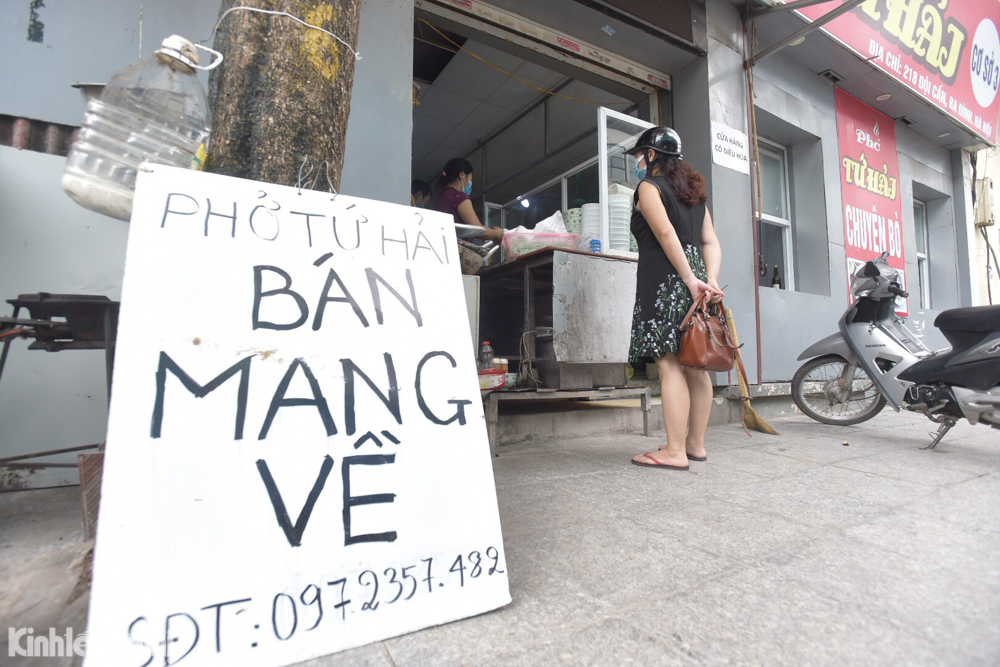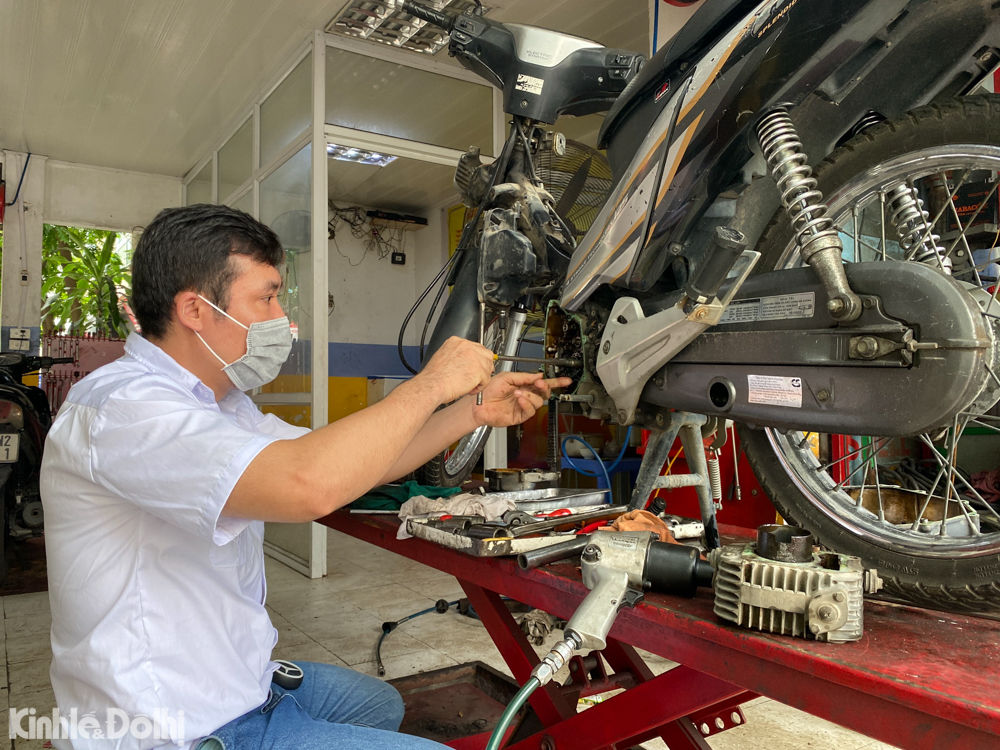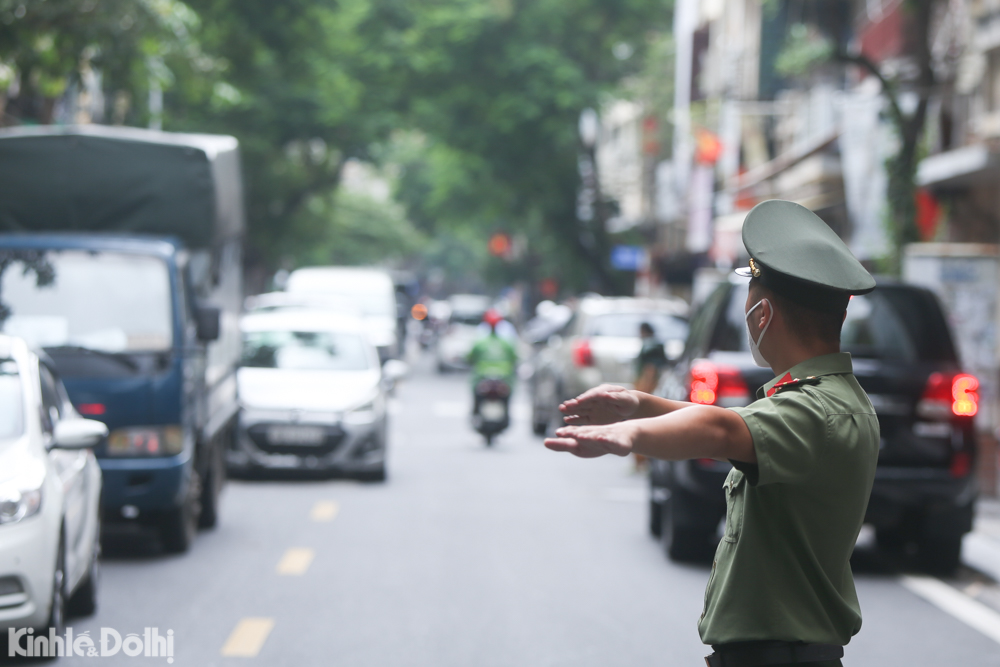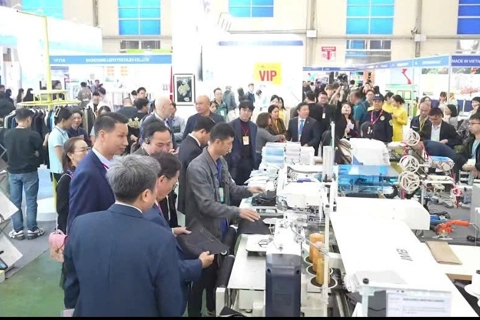City dwellers return to normal life on first reopening days
Hanoi's residents show their eagerness to revisit street food stalls and pick up their favorite dishes.
After nearly two months spent at home due to social distancing order, numerous Hanoi residents trickled out to the streets, searching for the local delicacies they have been craving in a happy mood.
Le Thi Hong Lien, a 30-year-old reporter in Hanoi, pulled up at her favorite bun cha (grilled pork with rice noodles) stall on Tran Dang Ninh Street in Cau Giay District and showed her eagerness to revisit street food stalls and pick up her favorite dishes.
“It feels nice being out on the street after spending weeks cooped up in the house,” Lien told The Hanoi Times.
Phung Van Ve, the owner of the bun cha stall, said he started cleaning up his shop immediately after news of the reopening had emerged.
“After spending two months at home, this is the day that I have been waiting for. I can finally make some money and stop my body from idling,” Ve was so excited to express his idea.
A takeaway-only sign in front of a food stall in Hanoi. Photo: Khanh Huy |
Despite receiving many phone orders since the early morning on Sep.16 when the city relaced social distancing in many districts, Ve did not open his stall until the afternoon to ensure the best food quality.
“Many have called for the biggest bowl of bun cha ever to make up for the craving that has built up over the past weeks,” Ve happily told The Hanoi Times.
It is clear that there was a palpable sense of relief and happiness among the shopkeepers on being able to reopen their business and start earning some income.
On Duong Khue Street in Nam Tu Liem District, Nguyen To Nga's restaurant has been resumed. "To be allowed to reopen is really good because now there's some income, my family will be better off now," Nga said.
"Hanoi has allowed the reopening of several businesses, including businesses like ours, my family was overjoyed. We cleaned things up and got ready to restart our services," she added.
Many other services were also reopened on September 16, including the vehicle repair shop of Do Tuan Nhat on Pham Hung Street.
A motorbike repair shop in Hanoi is reopened on September 16. Photo: Duy Khanh |
“Rents for this shop were still due during the social distancing months, so we’re glad that the place is allowed to resume operations. I have arrived early to disinfect everything in the shop, but customers are still required to wear masks and keep safe distances,” Nhat told The Hanoi Times.
Starting 12:00am on September 16, Hanoi has allowed 19 low-risk districts without new Covid-19 community transmission cases in the last ten days to reopen several businesses, including food and beverage establishments, stationery stores selling office supplies and books, garages that repair vehicles, and those that sell and repair electrical appliances.
Residents in low-risk coronavirus areas in Hanoi will not have to show travel documents when going out, according to Le Hong Son, deputy permanent chairman of the Hanoi People's Committee.
Son said travel document requirements would be adjusted as the capital relaxes coronavirus restrictions. Specifically, people traveling within 19 low-risk districts that have now entered the "new normal" as dictated by the municipal Department of Health would not need to show travel documents while going out.
However, people in high-risk areas would still need to abide by coronavirus restrictions as dictated by Directive 16, meaning they are only allowed to go out for essential reasons and must show travel papers when doing so.
With the removal of numerous Covid-19 checkpoints, the streets of downtown Hanoi were again abuzz with traffic on September 17. Traffic swarms along Tay Son Street in Dong Da District. Photo: Cong Trinh |
"Depending on different situations, districts would specify requirements. In the time ahead, Hanoi would gradually remove Covid-19 checkpoints in the city, leaving only those at the boundaries between different areas," Son told The Hanoi Times.
He stressed that Hanoi's Party Committee is expected to discuss concrete plans on how to relax coronavirus restrictions in the capital city, Son said, adding that restrictions are expected to be lifted gradually, not all at once.
The municipal police said on September 17 that 39 Covid-19 checkpoints across the city had been removed as Hanoi started to ease restrictions.
The capital city has recorded 4,118 local Covid-19 cases since the fourth coronavirus wave hit Vietnam in late April. Hanoi has undergone a series of social distancing orders, with the latest one expected to last until September 21.
To maintain business operations amid social distancing order caused by the fourth wave of the Covid-19 pandemic, it is necessary to pool the drastic involvement of local authorities, especially flexible plans in the fight against the Covid-19 pandemic and the prevention of production disruption.
Statistics by the municipal Department of Industry and Trade showed that since the social distancing order is imposed, only 1,077 out of 3,600 manufacturing facilities in industrial clusters and 546 out of 661 enterprises in industrial parks are working.
Deputy Minister of Industry and Trade Do Thang Hai said enterprises have proposed allowing them to resume operations, from 30-100% as before the pandemic, depending on their safety conditions and the results of the pandemic prevention and control.
The ministry sent a document to the Health Ministry suggesting the addition of production methods to make it easier for firms to choose, such as allowing workers to return home and pledge to follow “one route, two destinations” arrangement with local authorities and their companies, Hai noted.
He emphasized that authorities, especially in localities like Hanoi, need to take more flexible approaches to help firms amid the pandemic to prevent production chain disruption.













